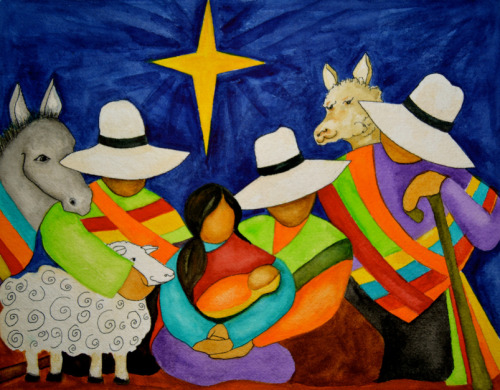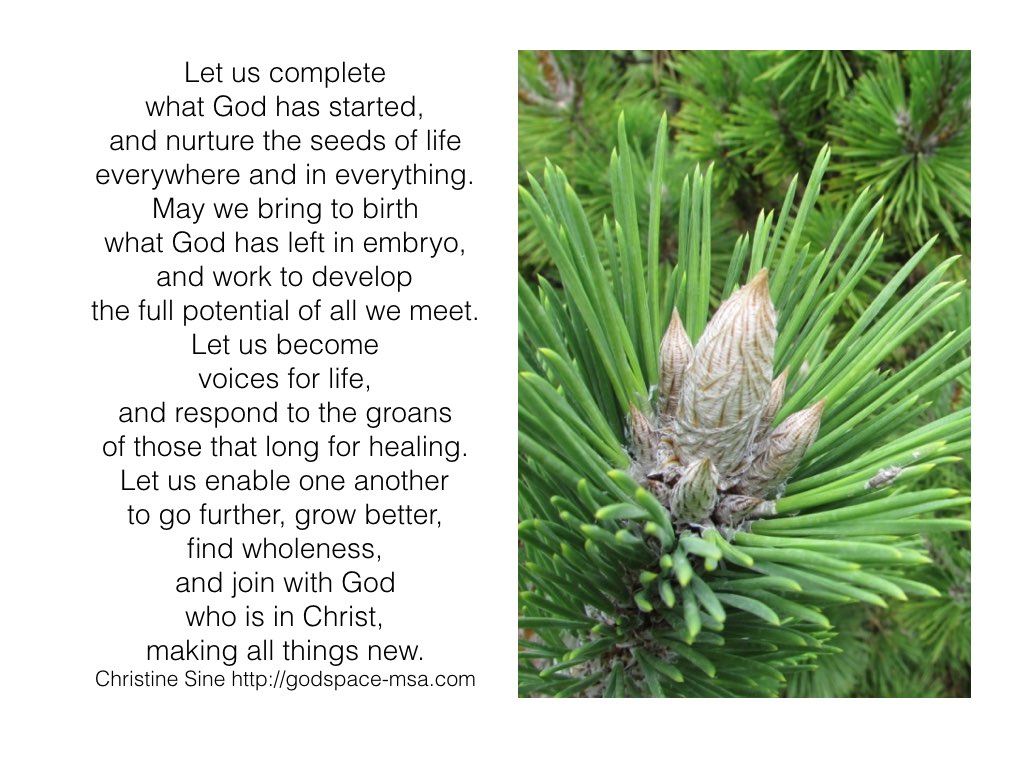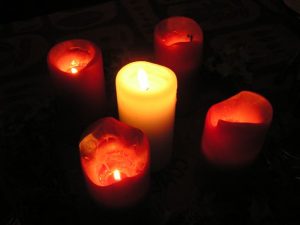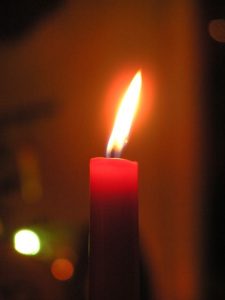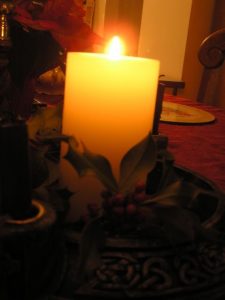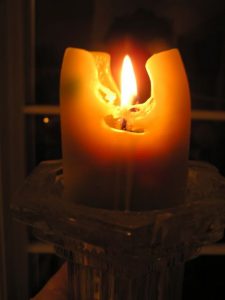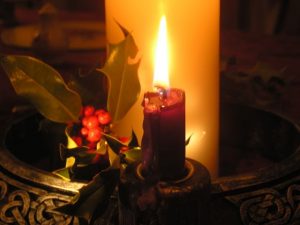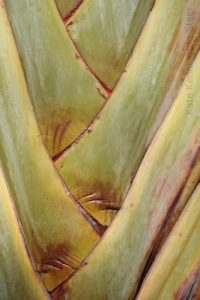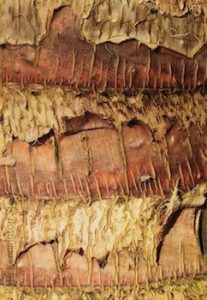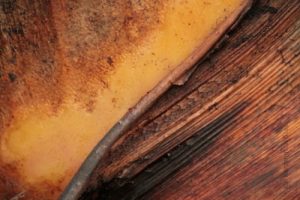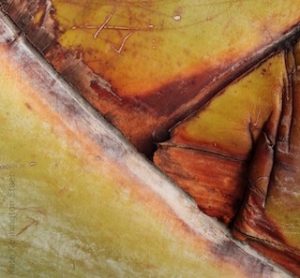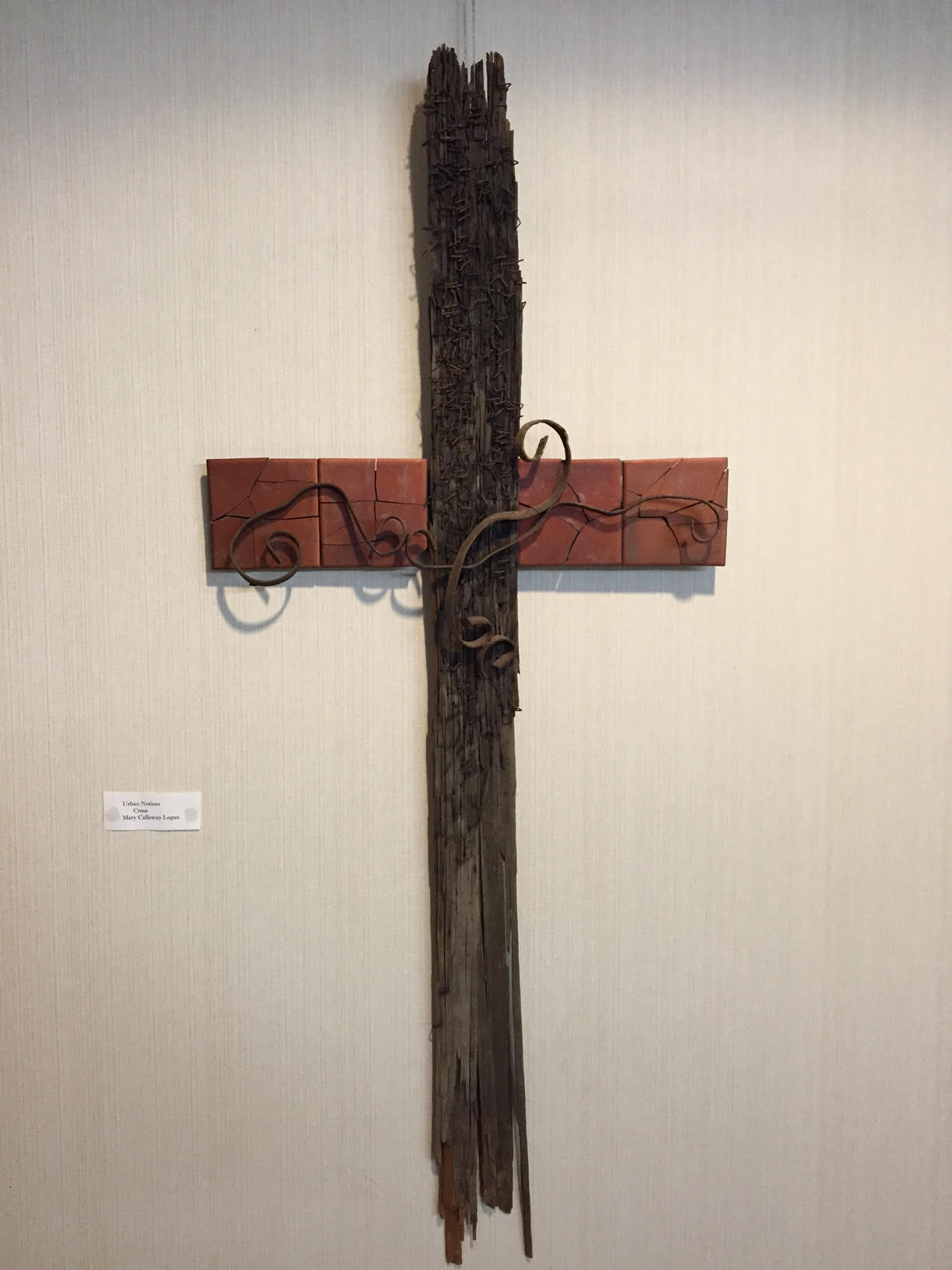One of my favorite artists is Marcia Carole. She leads ministry workshops with art in many countries. She was in Peru in not long ago, which inspired her newest creation – this ‘Peruvian Nativity – God Is With Us.’
I’m interested in her creative process, so below are some other pictures…. and part of her story as she created this lovely painting while in the hospital for chemo for stage 4 breast cancer, and her reflection about the implications of the Incarnation for the world, and for her.
Marcia writes, “I saw donkeys and alpacas when I visited Peru. It was fun to add these animals to the scene.” Here’s one of the early pictures of the process of painting this image:
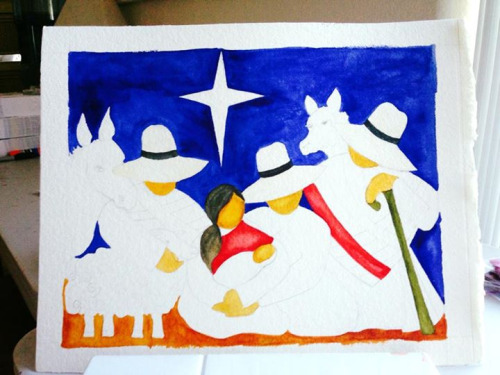
Marcia writes, “ I am completing a nativity scene in response to my time in Peru. I love all the vivid colors there. No one is afraid of deep blue, bright orange or a green that pops with life.”
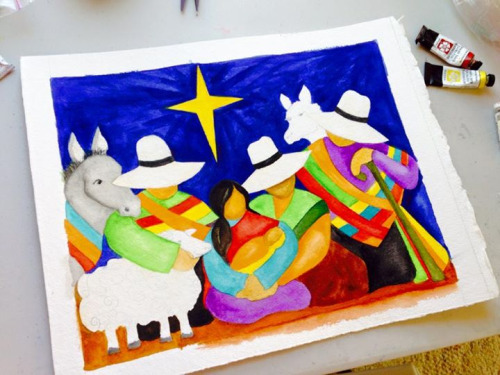
She printed the final image on Christmas cards:
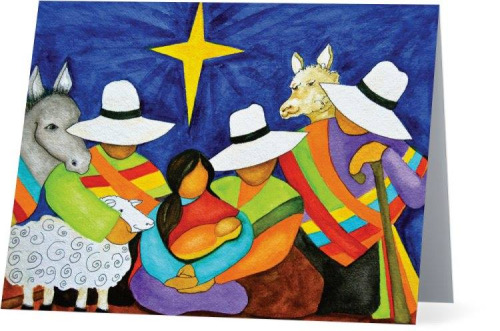
I find all of Marcia’s art to be beautiful and engaging; it appeals to my aesthetic sense at a remarkable level. What is even more remarkable is that Marcia is still alive and being creative after struggling deeply with stage 4 breast cancer for quite awhile.
Being very painfully aware of her own mortality drives Marcia to God, drives Marcia to create art for the glory of God (art of many types and subjects), drives Marcia to reflect upon the meaning of the Incarnation for the whole world.
She does that well in a moving essay on her blog about what it’s like to create this painting while in the hospital for yet more chemo treatments. Read her entire short essay on her blog Art Engaging Story
Here’s an excerpt …
I get a spurt of energy and think for a moment that, just maybe, I don’t have stage 4 breast cancer. Maybe I am fine!
That joyous thought is quickly swept away when I get tangled in my yards of oxygen tubing or my side begins to ache because of the cancerous fluid remaining in my right lung. I’m rudely jerked back to my current reality. I am sick. And, it is a long journey to get somewhat better.
Then, I sigh, and begin again, adding layers of bright, happy colors to my painting. God with us – Christmas. God with skin on – Jesus – came to live among us. He humbly started His journey as a baby. I am always amazed at this truth. I take some pain pills for my lung, and quietly worship as I add more layers of beautiful color. Yes, Beauty came to our broken world, and to mine. Even my world of cancer.
Please pray for my friend Marcia, we would deeply appreciate that.
To see more of her marvelous work and get Christmas cards with this lovely ‘Peruvian Nativity’ scene, visit her at The Creative Call Art Store
————————————————————————————–
This article was first published on Global Christian Worship as Peruvian Nativity by Marcia Carole
These last couple of weeks have been challenging for all of us. The massacres in Paris, Beirut, and Baghdad have shocked and grieved us. The angry and fearful ways many have responded, closing their doors to refugees, have made us weep.
It is good in the midst of such trying situations to remind ourselves of God’s desire for wholeness and completion, and to reaffirm our own calling as God’s people to help bring that wholeness into being. God has left peace, and love, and community in embryo form and asks us to bring them to completion.
It was as I reflected on this that I wrote the prayer above.
Listen also to the song below and reflect on your own response to this situation. How would God ask you to be involved in bringing wholeness to people in these types of situations
Thanks Emma Morgan, for this beautiful creative series of Advent candle liturgies. I wanted to share it early for those who are still looking for ideas of how to celebrate each week during Advent.
A single candle wrapped in a wreath is lit each Sunday of Advent. Around this candle stories are shared and prayers are given and placed.
Candle Week 1 – Hope Candle
Hope Candle extra Materials: Small piece of paper or newspaper for each person. Markers.
Introduction.
We come together in the midst of a busy season to take a breath.
To breathe in together the life that God gives us. To listen to the beat of God’s heart and the blessings and lessons this season brings to us.
Each week of Advent we light this Advent Wreath. With its light comes our prayers and our stories.
The candle of this first week of Advent is a candle of hope. Today the flame of this candle reminds us of the hope that came to this world when Jesus was born and his presence with us. Jesus said “I came so that everyone would have life, life in all its fullness. “
Light the candle.
Let’s listen for a moment to the hope that Jesus has given us this week. When have you seen the gift of hope this week? When have you known God’s rescue come into your life or life around you – in the big things or the small?
Music – Play iTunes track “Dark Highway” by the Waifs for around 1 min 30.
Share stories.
Has anyone got a story of hope to share with us?
Prayer
We thank you Jesus that you want to bring fullness and hope into every life. We thank you for the hope you have brought to us. We bring to you now prayers of hope for the people and places on our hearts this morning. Trusting in your powerful name.
Intercession
I invite you to write or draw your prayers of hope for a person, place or situation on your heart this morning and place it around the candle.
Music – Play iTunes track “Dark Highway” by the Waifs.
Candle Week 2 – Peace Candle
Peace Candle extra Materials: Leaf for each person. Eg. Eucalypt or Bay.
We come together in the midst of a busy season to take a breath.
To breathe in together the life that God gives us. To listen to the beat of God’s heart and the blessings and lessons this season brings to us.
Each week of Advent we light this Advent Wreath. With its light comes our prayers and our stories.
The candle of this second week of Advent is a candle of peace. Today the flame of this candle reminds us of the peace that Jesus brings into this world and his presence with us. Jesus said “27 I give you peace, the kind of peace that only I can give. It isn’t like the peace that this world can give. So don’t be worried or afraid.”
Light the candle.
Let’s listen for a moment to the peace that Jesus has given us this week. When have you felt the gift of peace this week? When have you known God’s presence driving out fear in your life or life around you – in the big things or the small?
Music – Play iTunes track ‘Peace at Last’ by Hem for around 1 min 30.
Share stories.
Has anyone got a story of peace to share with us?
Prayer
We thank you Jesus that you want to bring peace and freedom into every life. We thank you for the peace you have brought to us. We bring to you now prayers of peace for the people and places on our hearts this morning. Trusting in your powerful name.
Intercession
I invite you to pick up a leaf and pray peace for a person, place or situation on your heart this morning then come and place your leaf prayer around the candle.
Music – Play iTunes track ‘Peace at Last’ by Hem.
Candle Week 3 – Joy Candle
Joy Candle extra Materials: Confetti for each person.
We come together in the midst of a busy season to take a breath.
To breathe in together the life that God gives us. To listen to the beat of God’s heart and the blessings and lessons this season brings to us.
Each week of Advent we light this Advent Wreath. With its light comes our prayers and our stories.
The candle of this third week of Advent is a candle of joy. Today the flame of this candle reminds us of the joy that Jesus brings into this world and his presence with us. Jesus said “ Until now you have not asked for anything in my name. Ask and you will receive, so that your joy may be complete.”
Light the candle.
Let’s listen for a moment to the joy that Jesus has given us this week. When have you tasted the gift of joy this week? When have you known God’s provision, bringing happiness into your life or life around you – in the big things or the small?
Music – Play iTunes track ‘Christmas Joy’ by Fiona Joy Hawkins for around 1 min 30.
Share stories.
Has anyone got a story of joy to share with us?
Prayer
We thank you Jesus that you want to bring answers and joy into every life. We thank you for the joy you have brought to us. We bring to you now prayers of joy for the people and places on our hearts this morning. Trusting in your powerful name.
Intercession
I invite you to pick up some confetti and pray joy for a person, place or situation on your heart this morning then come and place your confetti prayers around the candle.
Music – Play iTunes track ‘Christmas Joy’ by Fiona Joy Hawkins.
Candle Week 4 – Love Candle
Love Candle extra materials: Purple crepe streamers cut into ribbons for each person. Markers.
We come together in the midst of a busy season to take a breath.
To breathe in together the life that God gives us. To listen to the beat of God’s heart and the blessings and lessons this season brings to us.
Each week of Advent we light this Advent Wreath. With its light comes our prayers and our stories.
The candle of this fourth week of Advent is a candle of love. Today the flame of this candle reminds us of the love that came to this world when Jesus was born and his presence with us. Jesus said “As the Father has loved me, so I have loved you; remain in my love.”
Light the candle.
Let’s listen for a moment to the love that Jesus has given us this week. When have you shared in the gift of love this week? When have you known God’s love come into your life or life around you – in the big things or the small?
Music – Play iTunes track “How to Make Gravy” by Paul Kelly for around 1 min 30.
Share stories.
Has anyone got a story of love to share with us?
Prayer
We thank you Jesus that you want to bring love and relationship into every life. We thank you for the love you have brought to us. We bring to you now prayers of love for the people and places on our hearts this morning. Trusting in your powerful name.
Intercession
I invite you to write or draw your prayers of love for a person, place or situation on your heart this morning and place it around the candle.
Music – Play iTunes track “How to Make Gravy” by Paul Kelly
 Emma Morgan is a pastor at Eastern Hills community church in Melbourne Australia. Emma has enjoyed curating services, retreats, seasonal celebrations, mediation lunches and dinner services for people of all ages and backgrounds for the past twelve years.
Emma Morgan is a pastor at Eastern Hills community church in Melbourne Australia. Emma has enjoyed curating services, retreats, seasonal celebrations, mediation lunches and dinner services for people of all ages and backgrounds for the past twelve years.
——————————————————————————
This is part of a series on Christmas/Advent resources.
- Advent Activities for Families and Kids for 2020
- Helping Kids Give Back This Christmas
- Celebrate With Simplicity This Christmas
- Advent/Christmas Music from a Rich Array of Traditions
- Getting Ready for Advent/Christmas Worship Resources for the Season
- Choosing Your Scripture Readings for the Coming Year
- Who Will You Invite to the Manger?
- What On Earth Are The O Antiphons
Resources from Godspace for Advent and Christmas
Godspace has a variety of resources available for celebrating this season.
- NEW BOOK! Lean Towards the Light this Advent & Christmas + Advent Cards Bundle compiled by Christine Sine and Lisa DeRosa
- Lean Towards the Light Advent Retreat Online – video sessions by Christine Sine along with handouts to prepare for the coming of the Christ Child this Advent.
- A Journey Toward Home: Soul Travel For Advent to Lent compiled by Kristin Carroccino and Christine Sine
- Waiting for the Light: An Advent Devotional compiled by Ricci Kilmer, Susan Wade and Christine Sine
- Prayer Cards – more than Christmas gifts. These have been used for daily devotions, grief counselling, small groups and congregational prayers.
Check out the entire resource list here for more ideas for Advent and Christmas.
Godspace has a number of Advent resources available for both free download and purchase. Visit our store.
————-
Resources from Godspace for Advent and Christmas
Godspace has a variety of resources available for celebrating this season.
Lean Towards the Light this Advent & Christmas + Advent Cards Bundle compiled by Christine Sine and Lisa DeRosa
A Journey Toward Home: Soul Travel For Advent to Lent compiled by Kristin Carroccino and Christine Sine
Waiting for the Light: An Advent Devotional compiled by Ricci Kilmer, Susan Wade and Christine Sine
Prayer Cards – more than Christmas gifts. These have been used for daily devotions, grief counselling, small groups and congregational prayers.
Check out the entire resource list here for more ideas for Advent and Christmas.
Godspace has a number of Advent resources available for both free download and purchase. Visit our store.
At the beginning of the calendar year, we make resolutions and plans for the entire year. Why don’t we do the same before Advent and do some planning for the liturgical year? After all, for people of faith, the liturgical year and rhythm that revolves around the life, death, and resurrection of Jesus, should be more important for us than the secular year.
Tom and I will hold our quarterly retreat soon to set our schedules for the coming year and we suggest you do too. Even if you don’t follow the liturgical calendar, now is the time to plan your scripture readings, prayer rhythm and retreat times for the coming year. Get together with your spouse, your family, or a group of friends and do some planning.
Here are some resources to help. I have tried to put together a list from a wide variety of denominational perspectives:
The Voice is a great source for the daily scriptures of the liturgical year. Tom and I print out the schedule at the beginning of the liturgical year so that we are ready for the entire year. We find that the combination of Old Testament, New Testament, Psalm and Gospel readings are all specially crafted to share a single focus and is a wonderful way to integrate the Old and New Testament stories.
They also has one of the most comprehensive explanations of Advent and the symbols we use during the season.
Resources to help you choose:
- Sacred Space – Daily Prayer with the Irish Jesuits
- Pray as You Go – also from the Jesuits. Daily prayer for portable MP3 players or available as an app for smart phones. This is a great resource for those on the go.
- biblegateway.com – provides a variety of reading plans that can be downloaded as an app.
- The Bible App – is another free app with reading plans for different seasons of the liturgical year as well as those themed around a topic selected by the user.
- The Daily Office from the Mission of St Clare and based on the Book of Common Prayer.
- Daily readings from the Presbyterian Mission Agency USA
- BibleStudyTools.com provides several plans for reading through the whole or parts of the Bible in a twelve month span.
- Reflections from Forward Day by Day
- Northumbria Community provides resources for praying the daily office through morning, midday, evening and compline services.
- Or, if you really want to be challenged this Advent, try this Social Justice Advent Guide for Families from the North Carolina Council of Churches.
- And Rachel Held Evans has a post on 28 Ideas for Advent that is definitely worth a look.
This is part of a series on Christmas/Advent resources.
- Advent Activities for Families and Kids for 2023
- Helping Kids Give Back This Christmas
- Celebrate With Simplicity This Christmas
- Advent/Christmas Music from a Rich Array of Traditions
- Getting Ready for Advent/Christmas Worship Resources for the Season
- Choosing Your Scripture Readings for the Coming Year
- Who Will You Invite to the Manger?
- Advent Candle Light Liturgy
- What On Earth Are The O Antiphons
Resources from Godspace for Advent and Christmas
Godspace has a variety of resources available for celebrating this season.
- NEW DEVOTIONAL! Lean Towards the Light this Advent & Christmas + Advent Cards Bundle compiled by Christine Sine and Lisa DeRosa
- Lean Towards the Light Advent Retreat Online – video sessions by Christine Sine along with handouts to prepare for the coming of the Christ Child this Advent.
- A Journey Toward Home: Soul Travel For Advent to Lent compiled by Kristin Carroccino and Christine Sine
- Waiting for the Light: An Advent Devotional compiled by Ricci Kilmer, Susan Wade and Christine Sine
- Prayer Cards – more than Christmas gifts. These have been used for daily devotions, grief counselling, small groups and congregational prayers.
Check out the entire resource list here for more ideas for Advent and Christmas.
Godspace has a number of Advent resources available for both free download and purchase. Visit our store.
Whenever I reflect on the metaphors of pilgrimage and journeying, it isn’t long before I remember a favourite tree that is one of the prize specimens in the glass house at the Royal Horticultural Society’s gardens at Wisley, which are a favourite haunt for me and my mum. Ravenala madagascariensis is a tree from Madagascar that is commonly known as the ‘Traveller’s Tree’. The legends go that it’s called this either because the palm like leaves hold water that could be drunk in an emergency, or because the fan shape in which the leaves are held grows on an east-west axis and could potentially be used as a compass. (Neither of these should be put to the test!)
I love this tree because it flourishes in adversity: it is an amalgam of different colours and textures, and as I have watched this Wisley specimen grow over time, the colours and shapes shift, merge and split. I spend long periods sitting in front of it holding a camera, seeing more and more intricacy as it matures. The name of this tree is also makes me remember a BBC Radio Four programme I sometimes catch which is called ‘Traveller’s Tree’ based on the folk tradition that travellers in Africa and South America pin advice for fellow travellers to trees.
As I sit in front of photographs of ‘my’ tree, I am reminded of how dependent I am on the need to travel my faith pilgrimage in the company of others, and how greatly I need to heed their fellow direction and advice along roads they have already travelled ahead of me. Being part of a community of pilgrims is vital for me since I spend much of my life alone, housebound or in bed, and can count the number of times I have got to church in the last four years on the fingers of one hand. The tension between travelling alone and in company becomes particularly evident when I am struggling with periods of recurring depression. At these times the lie that I have been abandoned by God is very loud in my head indeed. But it is is precisely in these ‘desert’ places that I need to remember the lesson of the Traveller’s Tree: God is present; God has provided and will continue to provide (often in creative, unlooked for and unusual ways); God has given me guides, teachers and companions along the way to accompany me in my lostness.
I wrote for this blog last year about ‘travelling whilst staying still’, and I realise a year on how pertinent that phrase remains for me. I keep returning to the Benedictine concept of ‘Statio’, and the importance of being rooted and grounded in one place. My bed can become the holy reminder that this journey I am travelling is a pilgrimage to the Now, to the Source of all Being, who is found not in a certain place my wheelchair can’t get to, nor in a certain religious practice my personality doesn’t warm to, but is found, by infinite Grace, in this moment where I already am.
I find myself on a pilgrimage of Presence. I am following the invitation of the Host to surrender my struggles in a series of infinite pauses along the Way.
I know this invitation to ‘be’ first rather than ‘do’ first is a vital one for me, a vital lesson (literally life-giving) in combatting the overachiever, the boom/bust artist, the ambitious, competitive perfectionist I am. So it is unsurprising I frequently fail. I pick up the heavy baggage again that I have only just put down. I don’t listen to the knowledge I have been given inside me. I don’t concentrate on the words of those guides who have made maps for me. Nor do I pay enough attention to the wondrous signs of the world right in front of my eyes. But eventually Grace prompts me to come to my senses, to realise I’ve been drifting, and to set off with intention once more towards my God in the direction that ancient teacher Wisdom has given me.
Along her path there is much pleasure,
and her path goes through places of peace.
She is a tree of life for those who bring her inside,
those who hold her firmly inside are called happy.
(from In Praise of Sophia, Proverbs 3.11-20, translated by Aaron Blum)
I am thankful for those places of peace that I find. This Godspace/Mustard Seed community is one. The Ravenala madagascariensis is another. And I remind myself again of one last fact about this tree: it is fitting that it is defined as a member of the ‘bird of paradise’ family.
In the shade of the Traveller’s Tree you can call me happy.
Sunday is Christ the King Sunday, the last Sunday in Ordinary Time before Advent and the beginning of a new liturgical year. I must confess, it is not a celebration that is very much on my radar screen. I thought that this celebration must date from the Middle Ages, but discovered recently that Pope Pius XI added it in 1925. He intended it as a day to celebrate and remember Christ’s kingship over all creation, as well as remind us that all humankind must submit to Christ’s rule.
As you can imagine, this celebration, especially in recent years, been a somewhat controversial day among those Christians who consider the language of kingship outdated or oppressive. For many, the images of kings and kingdoms conjure up thoughts of tyrants. But the kingship of Jesus takes on a very different form than does the kingship of earthly rulers as we hear in this my favourite “kingship” song.
Jesus comes to us not as a great conquering military leader who oppresses and abuses the conquered. Rather, he comes as a servant king, the Prince of Peace, the One whose reign proclaims peace, justice, liberation, and above all, service. Jesus turned the whole concept of lordship and kingship on its head:
You know that those who are recognized as rulers over the Gentiles lord it over them, and their great ones make their authority over them felt. But it shall not be so among you. Rather, whoever wishes to become great among you will be your servant; whoever wishes to be first among you will be the slave of all. For the Son of Man did not come to be served, but to serve, and to give his life as a ransom for many. (Mark 10:42-45, NAB).
Images of God, as Lord and King seem foreign in a democratic, individualistic society. But our all-powerful God, is also all-loving, and all-merciful. God’s heart aches to be in a loving relationship with his creatures once more. This is what Christ’s kingship is all about. We must submit to Jesus as our Lord and King, but it is a submission that paradoxically brings with it liberation, freedom from sin and a life of wholeness for us, for others and for God’s world.
I love this powerful image of Jesus as King and the kingdom of God as a place of hope that Foy Vance gives us here:
Jesus knew the popular images of kings and lords and redefined them. In God’s resurrection world, in order to be a ruler of all, Jesus must become a servant of all. Jesus demonstrated this servanthood in his life and miracles. Even the Incarnation is an example of this: God the Son, King of all creation, humbled himself to become human, even sharing the ultimate fate of his captive subjects: death.
Interestingly, most references to Jesus as king occur during the Passion story. The symbol of Christ’s kingship is not a crown but a cross. The Son of God became human and died a horrible death on the cross to release his subjects from captivity. The One who is the true king of our world made this ultimate sacrifice out of his deep and abiding love for the world, a world constantly in rebellion against him. Christ’s kingship is not like a king with a jewel-encrusted crown in purple finery on a gold throne wielding an oppressive rod of iron. Rather, he is the crucified God with a crown of thorns hanging half naked on a cross of shame to set us free from our bondage.
No collection for Christ the King Sunday is complete without this inspiring description of Christ the King of Kings by SM Lockridge.
Here is a prayer that I wrote a couple of years ago for Christ the King Sunday:
Let us praise Jesus Christ our king
for the wonderful things he has done.
He sends out his word to heal us.
He satisfies the thirsty with the water of life.
He fills the hungry with the abundance of his kingdom.
Let us praise Jesus, redeemer and renewer of all things.
May we always trust in his goodness and love,
And have faith in his grace and mercy,
May we always believe he cares about justice and righteousness,
And draw our life from his eternal purposes.
Let us praise Jesus Christ our king and saviour,
May we be filled with the hope and promise of his coming,
And give our lives to follow him.
May we be gripped by his kingdom ways,
And walk with assurance and trust into his grace and peace.
Other Resources for Christ the King Sunday
- Prayers for Christ the King Sunday here
- Service of Worship for Christ the King Sunday
- Other resources for Christ the King Sunday
And after all that serious stuff, you might like a little light liturgical dancing for Christ the King Sunday:
Each year as we draw close to the end of the Season of Pentecost (the season takes up 26 of the 52 Sundays each liturgical year) the readings get a bit “freaky”. With the wars and rumors of wars and “end times” sort of focus, I have to admit that it makes me a bit uneasy as I focus on the readings and prepare to preach.
This past week, Denise and I spent time at Columbia Theological Seminary taking a course on Ignatian Spirituality. The above picture is of a cross that hangs in the building where we attended classes and daily worship. The passages of scripture for tomorrow have been in the back of my mind and I did find myself focusing on them using the Ignatian practice of Lectio Divina. Interestingly enough, Week Three of the Spiritual Exercises has the pilgrim focusing on the last week of Jesus’ life, Passion Week in the liturgical calendar. It was pretty intense for us to spend the day on Thursday contemplating and focusing on Gethsemane and Jesus’ crucifixion and burial. Denise spent the afternoon in deep conversation with Joseph of Arimathea as he took Jesus’ broken body from the cross and prepared it for burial. I spent the afternoon in deep reflection with Jesus as he suffered in the garden and wrestled with what was to come. I also wrestled with how he had to deal with the disciples who couldn’t wait with him in prayer. It was not an easy afternoon for either one of us and we were doing all of this in complete silence!
When I spent some time walking this week and this evening with the disciples and Jesus in Mark 13:1-8, I could see myself taking in the beauty and majesty of the Temple. As we were simply wowed by the impressive stones and the design of the Temple, we just had to share our observations with Jesus! What he said next though, was cryptic and puzzling. Gee whiz, Jesus, all we wanted to do was share our thoughts about the Temple and its magnificence… what’s up with the cryptic remarks about the Temple being destroyed? All of the cryptic remarks you shared with Peter, James, John, and Andrew didn’t help matters either. How did we go from talking about architecture to this end of the ages spooky stuff? What are we supposed to do with this information you shared? And this talk about “false messiahs”? How are we supposed to know what is true and what is false? How are we supposed to live our lives in this situation? Lord, you’re freaking us out…
All you have to do is look at the headlines to see that this world is a mess. All you have to do is think of places like Lebanon, Syria, Iraq, Yemen, Palestine, Jordan, and Saudi Arabia (the places that don’t make the headlines as often) where horrible things are happening and people are being tortured and destroyed for their faith or simply at the hands of fanatics who have perverted the Islamic or Jewish faiths. And don’t get me started on the various perversions of the Christian faith which ranges from pastors who believe that LGBTQ people should be killed to the greedy leaders who fleece the sheep of their flocks to line their own pockets all while crowing about the so-called prosperity gospel. These perversions of faith on all sides do nothing to glorify God or Allah or Jesus… all they do is destroy people’s lives and too many cases literally kill people… all in the name of religion.
So, I get it Lord… and haven’t there always been “false shepherds” who are out for their own gain or who believe that their way is the only way and if you don’t follow their way, you don’t deserve to live? The disciples asked Jesus when will this happen and how will we know it. Jesus’ response was less than heartening. Oh don’t worry, you will see it coming… but this is only the beginning… the “birth pains” with “more to come”.
But how are we to live? What sort of witness are we to offer… especially in these troubling times? I am thankful for the portion of Hebrews 10 that are included in the lectionary for tomorrow. While it begins talking about the sacrificial system, it lifts up hope and a way to move forward. “And the Holy Spirit also testifies that this is so. For he says, ‘This is the new covenant I will make with my people on that day, says the Lord: I will put my laws in their hearts, and I will write them on their minds.” (Hebrews 10:15-16)
What will this new covenant and placing the law upon our hearts do? How will we be called to act? Especially in times such as these? “Let us hold tightly without wavering to the hope we affirm, for God can be trusted to keep his promise. Let us think of ways to motivate one another to acts of love and good works. And let us not neglect our meeting together, as some people do, but encourage one another, especially now that the day of his return is drawing near.” (Hebrews 10:23-25)
Over and over and over again… the lesson comes through… Love and encourage each other… Can you heart it? Love God and love neighbor! That is the response Christ calls us to live out. Live our lives as an offering to God. Part of the reason there is so much hatred in the world is because so many people have absolutely perverted faith. Christians… Muslims… Jews… all of us are children of Abraham. We each take our sacred texts and twist them to suit our own aims. We use our sacred texts to build walls and barriers instead of using them to break down walls and actually talk to each other and get to know each other as children of Abraham.
Politically… Economically… Racially… Sexually… Spiritually… in each of these areas we build barriers and teach ourselves to hate. Maybe I am naive. The older I get and the more I experience life and faith, the more I see both the hopelessness in the world AND the hope! In small corners and pockets, people of various faiths, races, sexual orientations, and economic strata are learning to live together and dialogue. In this dialogue, they are learning to encourage each other and work together, motivating each other to acts of love and good works. They rarely make the headlines because for some reason the media doesn’t think that such stories are interesting enough.
How then are we to respond? What are we to do when we hear of wars and rumors of wars? What are we to do when massacres happen all over the world and in our own back yards? Perhaps we are being called to do something different. Instead of turning our homes and our neighborhoods into armed camps, maybe we are being called to beat swords into plowshares and spears into pruning hooks. Instead of buying into the myth of redemptive violence, how about living the reality of redemptive love.
Lord, help us to live into your reality of love. Help us to do justice, love mercy, and walk humbly with you. May we be transformed from a people who buy into the lies of the “prosperity gospel” and “my way or the death chamber faith” to a people who believe in the power of your redemptive love.
Dear reader, there has to be a better way… there is a better way… Shalom, Peace, Agape, Love… may God help us to encourage each other in living that better way!
———————————————————————————-
Michael Moore retired from the USAF where he was a Chaplain for 26 years. He and his wife Denise live in Estes Park, Colorado where he is the pastor of Presbyterian Community Church of the Rockies. He blog at https://scotsirishpadreblog.wordpress.com.
As an Amazon Associate, I receive a small amount for purchases made through appropriate links.
Thank you for supporting Godspace in this way.
When referencing or quoting Godspace Light, please be sure to include the Author (Christine Sine unless otherwise noted), the Title of the article or resource, the Source link where appropriate, and ©Godspacelight.com. Thank you!

